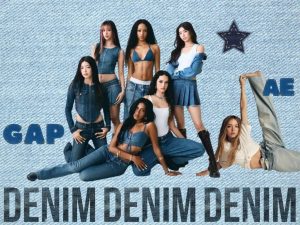Dancy Turner discusses ignorance, uneducated approach associated with race
Student spotlight
November 27, 2015
According to society, Native Americans have often been characterized as being dark skinned, with dark hair, but Dancy Turner is from the Rincon Band of Luiseño Indians tribe and is fair-toned with brown hair and colored eyes.
As a child, Turner grew up on the reservation in Valley Center, CA, a place where she said there were issues surrounding race and gender inequality.
Turner recalls that as a child on the reservation, children were mean to her and treated her as though she was an outcast because she looked different than them.
“I had blonde hair when I was little,” said Turner. “Growing up inside the tribe, I was always made fun of because I was like the white girl on the reservation. A lot of my cousins are super dark skinned and look like Indians.”
As she grew older, Turner said she realized that even though she is also Portuguese and Irish, she too belonged on the reservation, just as much as the others did. She said that it was her connection to her Luiseño side and her lack of knowing about the other part of herself that made her identify as Luiseño as opposed to her European side.
It was these experiences that made her form a tough skin in relation to stereotypical comments towards both herself and the Native American community as well.
“Growing up on the reservation where we’re from, allowed me to be open-minded as a person and be able to handle other people’s opinions and not be offended by them and just go with the flow of things,” said Turner.
Even though she has tough skin, Turner said she still believes that “people aren’t going to change,” the issue surrounding race is unacceptable and people should learn to be more culturally aware and respectable towards one another.
For example, regarding the controversy surrounding the renaming of the NFL’s Washington Redskins, Turner feels it is inappropriate and that the name should be changed.
“It is a derogatory term and we wouldn’t name a team, ‘The Wetbacks’ or ‘The N-Word,’ for example, so it should be changed. I think people walk on the fine line of arrogance and being educated. They say they’re educated when they’re not because things like that are not right,” she said.
Today, Turner strives to keep her Luiseño culture alive as she reflects back on being raised Catholic and attending the Catholic church on the reservation.
“Growing up, I was raised Catholic and Catholicism was something implemented through boarding schools and overtime, people kind of stuck with it, so now it’s normal,” said Turner.
However, Turner doesn’t agree with the old notion of Native Americans being forced to take on non-traditional Native American ways.
Had the Luiseño culture not been broken down by boarding schools and the missions on her reservation, Turner said that she feels like it would have benefited her because she would “know more about her culture and it would have kept the bond stronger for future generations.”
With that, Turner strives to become more educated on her heritage, pass the traditions down to her children and educate others on the Native American culture as well.
She would also like to break down the cliched ideas associated with her heritage by informing people not to judge a book by its cover and to be considerate of other cultures as a whole.





